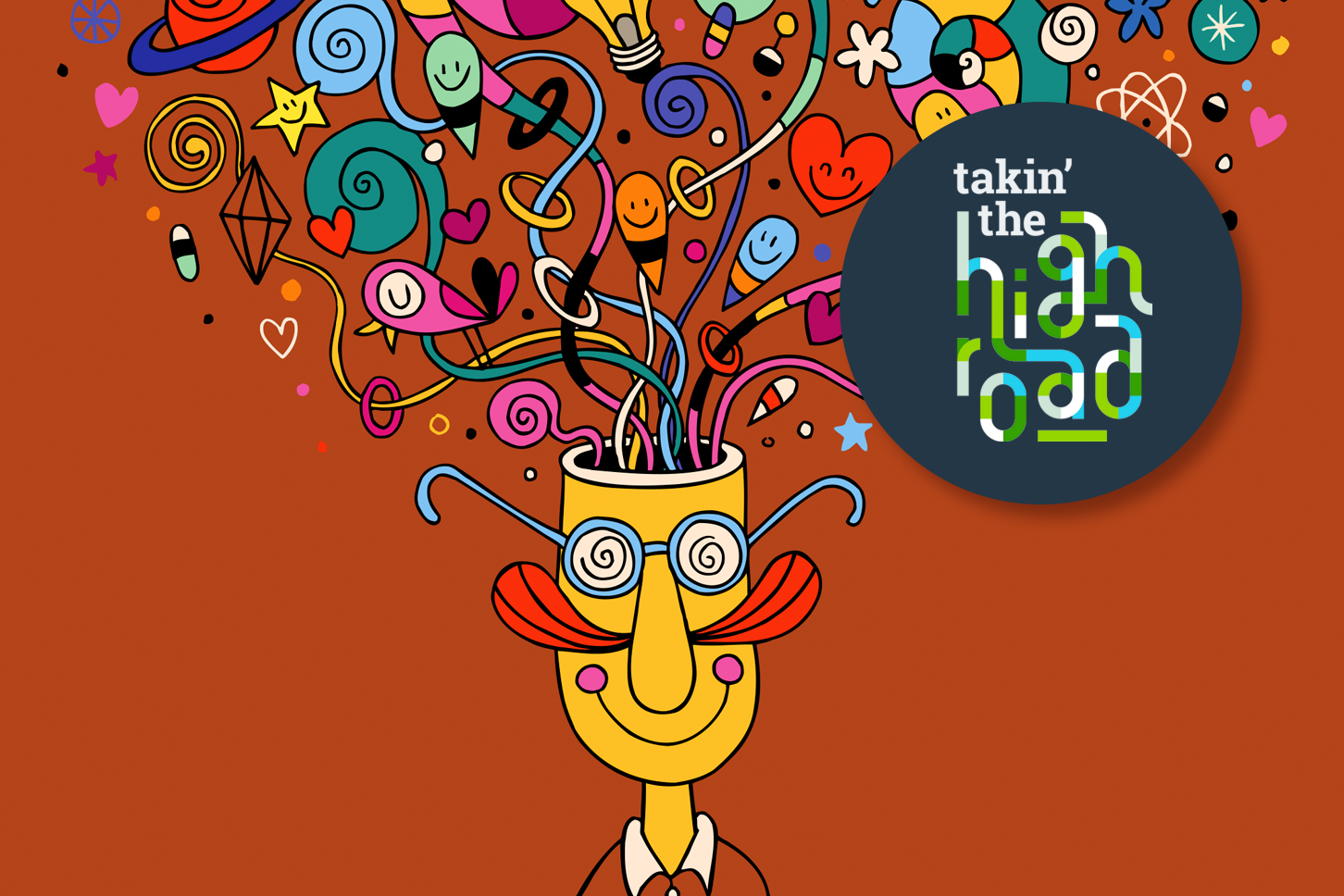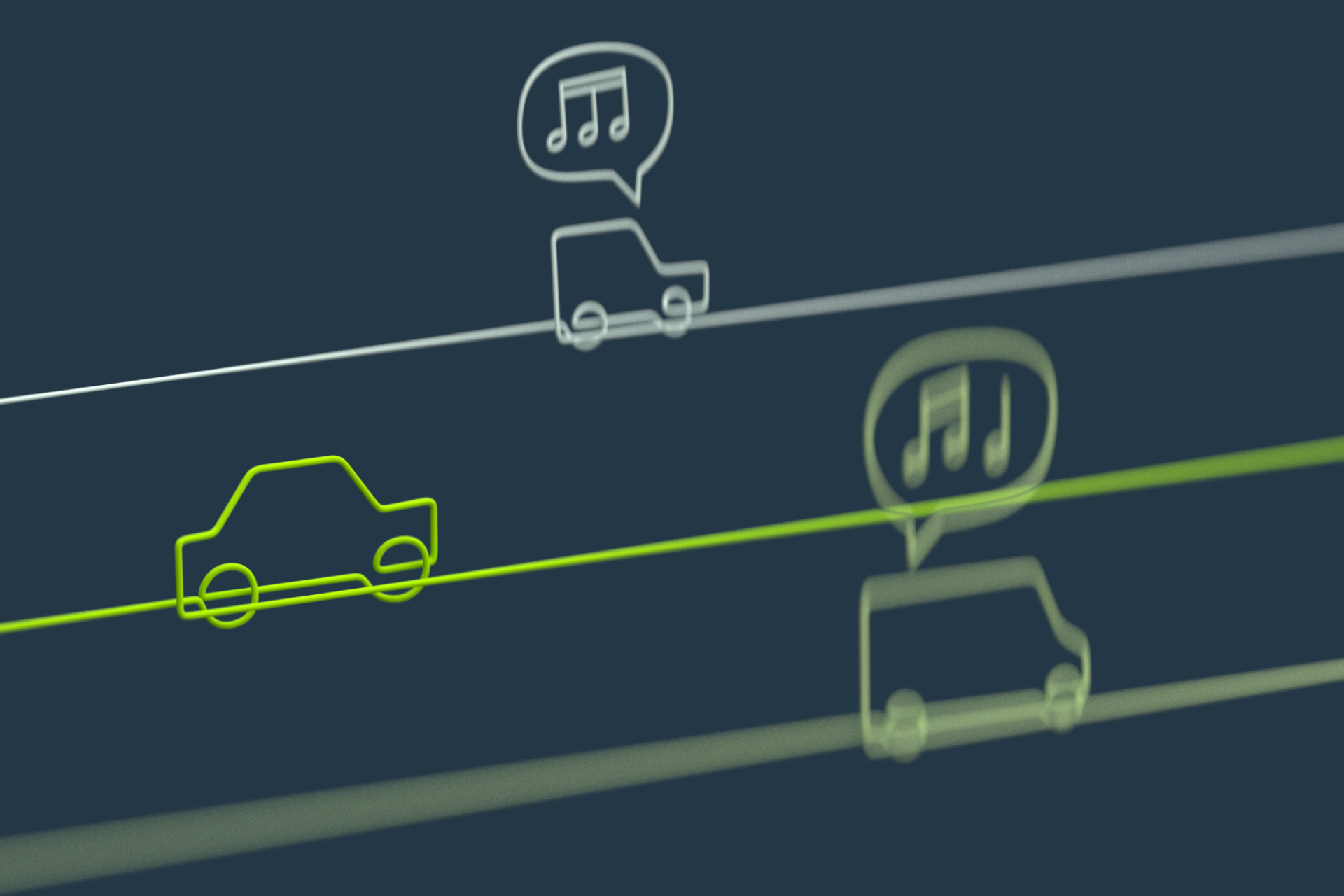The science behind kindness and its ripple effect
September 22, 2022
Holding the door.
Waiting for someone to cross the street.
Listening to your date.
Putting food back where it belongs at the store.
Returning the shopping cart.
And yes, picking up the dog poop.
These are all moments of kindness, whether we think they are or not. And as an act of good you’re probably doing on a daily basis, there’s no limit on what all of that kindness is doing for you and those around you.
Let’s give you that added pick-me-up by sharing what your moments of good are doing for you and others—creating a ripple of kindness.
Kindness and its effect on the brain
While picking up your dog’s waste doesn’t exactly feel like a moment of good, trust us, it is. Those little things that feel mundane may have a bigger impact than you think. To explain, here’s what those “doing the right thing” moments can do for you.
Kindness is chemical—and by that, we mean the act of doing good can boost three key brain chemicals and hormones: oxytocin, dopamine and serotonin.
Dr. Waguih IsHak, a psychiatry professor at Cedars-Sinai, suggests that when we perform acts of kindness, these chemicals and hormones are released in the brain and can give us a “helper’s high.”What is a helper’s high? As confirmed in various studies, it consists of positive emotions that follow from selfless service to others. We learned from an article in the Explore: The Journal of Science and Healing that this “high” may bring feelings of elation, increased energy or exhilaration and be followed by a period of calm and serenity.
“It [serving others] gets under your skin. The real big secret to service to others is the majority of the benefits accrue to you. It just becomes who you are. It's not something you pick or choose; it's just part of your nature and makeup.”
– Steve Culberson, president of Youth Service America
Beyond those positive feelings, the same article found that a helper’s high may bring positive changes to your body’s immune system and can help lower your stress hormones. This article from Inc
. says that when you make an effort to be compassionate and treat others with kindness, you can reduce cortisol levels—which is a stress hormone.Although many of us feel some level of stress most of the time, when we cultivate feelings of kindness and compassion, it naturally counteracts that stress, says James Doty, clinical professor of neurosurgery at Stanford. He also mentions that when we have the intention to be kind, it has a big impact on our physiology. It takes us from a place where we feel stressed and threatened to a rested state of mind.
With the understanding of how our brain reacts to kindness, how can it affect the rest of our health and well-being?
The benefits of doing good
The Dalai Lama once tweeted, “If you want to be happy, practice compassion.” Beyond happiness, those who engage in helping others may have better mental and physical health. Because we mentioned a thing or two about the mental benefits of kindness and its effect on the brain, let’s dive more into the physical perks of doing good.
Forbes published an article in 2020 mentioning various medical studies on the topic. And one interesting—and slightly odd—fact is the saliva of compassionate people may contain more antibodies that help fight infection.
A resource provided by Dartmouth College titled Kindness Health Facts gives us further insight into how the act of kindness benefits your health. Here’s a summary of what we found:
Kindness boosts
Those who volunteer or do good may be less likely to experience aches and pains. It also can improve your overall health and help lower the likelihood of dying early. Those who help others may also feel stronger and more energetic, feeling an increased sense of self-worth.
We mentioned earlier that kindness stimulates certain brain chemicals and hormones, such as serotonin (the feel-good chemical) and oxytocin (the love hormone). Serotonin can help heal wounds, calm you down and feel happier. Oxytocin can aid in improving overall heart health, self-esteem and optimism.
Kindness lowers
What can kindness lower? First, pain. When we engage in acts of kindness, our bodies produce endorphins, the brain’s natural painkiller. Second, blood pressure. Because doing good for others releases oxytocin, that hormone can reduce blood pressure and help protect the heart.
Third, when we give of ourselves, anxiety and stress may be lowered. Kindness can produce fewer stress hormones and improve your mood, relationship satisfaction and decrease social avoidance.
Something else you may not think about is the ripples of good you’re making after a moment of kindness, also known as the paying it forward phenomenon. It’s that belief that “one person can make a difference.” And at HiRoad, we recognize and reward you for those small moments of good on the road.
The HiRoad effect
We aren’t your average car insurance company at HiRoad. We’re the kind of people who believe in the notion of one person making a difference. An act of kindness, whether that’s waiting for another driver to merge into traffic or putting the grocery cart away, can influence those around you and help make the world a better place.
Where does kindness start? It can come from anywhere, but one place we recognize it the most is on the road. Let’s get good going and reward your kindness from behind the wheel today with HiRoad.
The information in this article was obtained from various sources not associated with HiRoad®. While we believe it to be reliable and accurate, we do not warrant the accuracy or reliability of the information. HiRoad is not responsible for, and does not endorse or approve, either implicitly or explicitly, the content of any third party sites that might be hyperlinked from this page. The information is not intended to replace manuals, instructions or information provided by a manufacturer or the advice of a qualified professional, or to affect coverage under any applicable insurance policy. These suggestions are not a complete list of every loss control measure. HiRoad makes no guarantees of results from use of this information.
Stay on the path
Want to compare auto insurance quotes faster?
You can save up to 50%* with HiRoad—but it’s always smart to shop around. Our free Quote Comparison Organizer makes it easy to compare insurance options in less time. Share your email and we'll send it to you.



